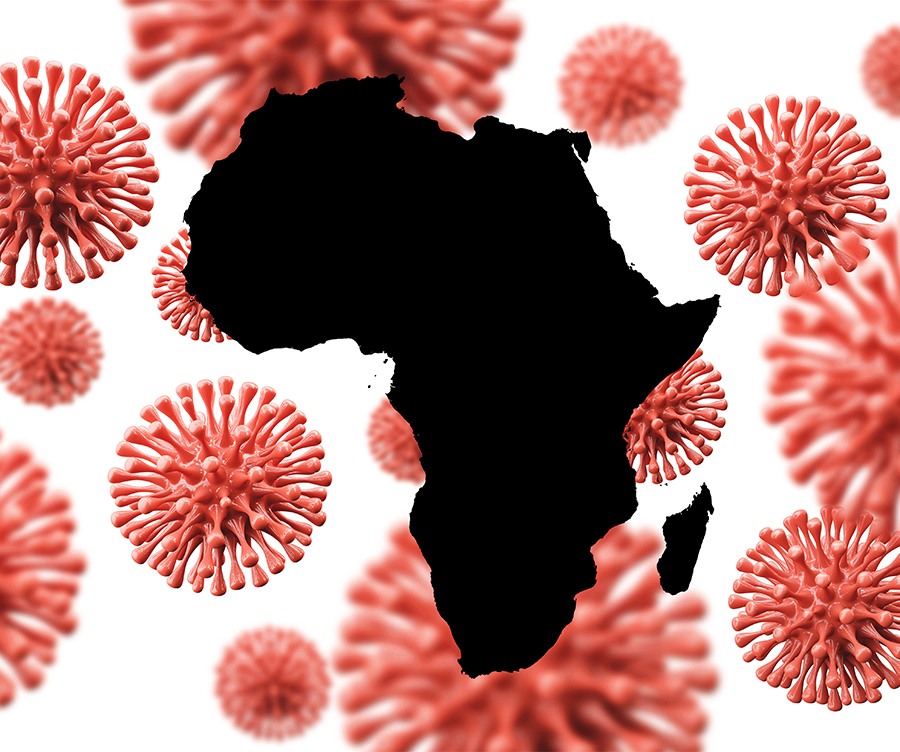The African Export-Import Bank (Afreximbank) has announced a new US$1.5bn pandemic response facility with backing from the International Islamic Trade Finance Corporation (ITFC) and the Arab Bank for Economic Development in Africa (Badea).
Having been launched last week, the Covid-19 pandemic response facility (COPREFA) will offer “rapid” financial assistance to help African countries with the import of medical supplies, as well as agricultural equipment and fertilisers.
Eligible central banks, commercial banks and businesses on the continent will be able to get COPREFA support from Afreximbank, ITFC or BADEA, which will come in the form of direct funding, lines of credit, confirmation and refinancing of documentary credits, guarantees, cross-currency swaps and other similar instruments.
A joint statement adds that a “key attribute” of the COPREFA facility is the speed at which financial assistance can be provided, with standard eligibility criteria and credit appraisal processes having been developed by COPREFA partners so that applicants can get their hands on financial assistance quickly.
Speaking about the facility during a virtual signing ceremony last week, ITFC’s CEO Hani Salem Sonbol says the deal will “deliver immediate relief from the supply side restraints on personal protective equipment [PPE] caused by the pandemic”.
He adds that the facility “will boost economic activity when and where it is needed most and help many countries maintain food security at a time when global commodity supply chains are being challenged and import activity sharply reduced”.
According to an August report from the United Nations Conference on Trade and Development (UNCTAD), Africa imported about 85% of its food from outside the continent between 2016 to 2018, leaving it susceptible to food insecurity issues during the current Covid-19 crisis.
In a separate report released last month, UNCTAD notes that middle and low-income countries around the world have largely been priced out from access to Covid-19 supplies.
“Since the outset of the pandemic, each resident of high-income countries has benefited on average from an additional US$10 per month of imports of Covid-19 related products, compared with just US$1 for people living in middle-income countries and a mere US$0.10 for those in low-income countries,” the report says.
To date, Afreximbank – which takes the lead on the new co-financed facility – has already extended over US$6bn in support through its Pandemic Trade Impact Mitigation Facility (PATIMFA), which launched in March and will run alongside COPREFA.
Afreximbank’s president Benedict Oramah noted during the COPREFA signing ceremony that the bank can only provide so much support to countries on the continent on its own, however, adding that the partnership between the three is “very important”.
“Afreximbank has stepped forward as much as possible to do the best it could, we have already disposed over US$6bn. We expect that by the end of the year to dispose about US$7bn. But we have capital constraints, we can’t do more… So it is significant that ITFC have stepped forward at this time of need to show their support for the continent,” he said.
As part of the measures that it has introduced this year for its 27 African member countries, ITFC provided US$200mn in finance to Afreximbank in July, helping thousands of farmers in Africa finance the export of soft commodities such as raw cashew nuts, cocoa, sesame seeds and maize.
Meanwhile, Badea’s director general, Sidi Ould Tah, says that the multilateral development bank has allocated more than US$350mn in the “fight” against Covid-19 through the COPREFA and other initiatives.
A report released last month by various MDBs and trade development institutions – including BADEA and ITFC – found that trade finance banks in Africa are calling for greater levels of support from these institutions.
Drawing on conversations with 70 trade finance executives across the continent, the analysis found that banks wants MDBs to take on greater levels of risk on the continent, or else a potential insolvency crisis could be on the cards.







